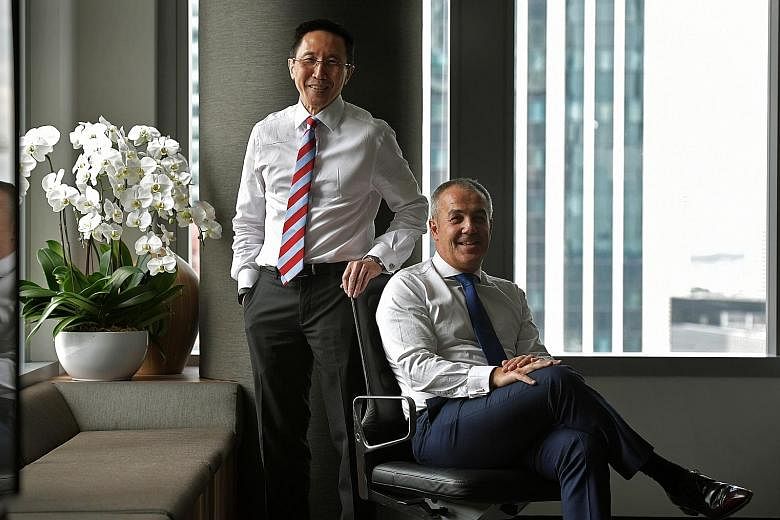Firms should take into account the way disruption and economic cycles have changed the way businesses work when creating incentive compensation for top executives.
Mr Michael Burke, chief executive of talent, rewards and performance at global HR management and consulting firm Aon Hewitt, told The Straits Times yesterday that the key to an effective plan is balance and a long-term view on what the firm is trying to achieve.
Companies also have to be conscious of the economic cycles they will go through.
"What we're seeing firms come to is a balance of fixed pay, short-term bonuses and long-term split between retention and performance. There are different ways to develop and build those plans, but it's about having that balance," said Mr Burke.
As disruption occurs across industries and economic cycles become more volatile, more firms here are seeking that balance.
Aon Hewitt senior partner Na Boon Chong noted: "Over the last four to five years, we've seen an increase in client demand on having consultants come in not just for a one-off review, but on an annual basis to advise the remuneration committee."
Mr Burke said the reason is that performance components for a long-term incentive plan, such as relative total shareholder return (TSR), are now getting more sophisticated.
"For example, in the United States market, where we've seen performance-based plans, 85 per cent of those now have multiple measures, whereas several years ago it might have been one. They are becoming slightly more complex, in order to deal with a higher rate of disruption," he added.
Mr Na cited a Singapore-listed conglomerate that adopted newer features to its incentives for top executives as it saw its business mix changing rapidly.
"In the past, they used relative TSR and absolute TSR. Now they take this five-year balance scorecard, where the TSR performance is moderated by the scorecard strategic measures to determine the additional incentive, on top of their normal plan.
"The basis is to say we need to achieve certain strategic measures - financial and non-financial period - over five years, but also need to look at shareholder return and balance that."
Mr Na added that when it comes to designing incentive plans, stress-testing those plans, sunset clauses and periodic reviews are important. "When you design an incentive plan in the downturn, it's a certain way, but when the upturn comes, you may be overpaying. Sometimes companies have a plan in place and forget about reviewing it."
Mr Burke noted that plans can also vary among the different arms of multinational corporations.
He added: "The US is slightly different from Britain or Asia, generally. It's about how much is fixed pay, versus short bonus versus a long-term plan that's merely about retaining key staff and driving maybe shareholder value, or driving specific actions and performance.
"Those are starting to converge. The most common model is something like 10 per cent fixed, 20 per cent as a short-term bonus, 35 per cent in retention or performance. "
Mr Na said for large-cap firms in Singapore, long-term incentives have been rising from single digits to about 30 per cent over the years.
"It's common to see large-cap firms here with one-third base salary, one-third on the annual bonus, and one third long-term incentives... In the US, long-term incentives can be 60, 70 per cent," he added.
Mr Burke said firms should "resist the urge when you hear about the new fad and over-rotate to that, but try to think about a balanced plan and tweak it to your business needs".


